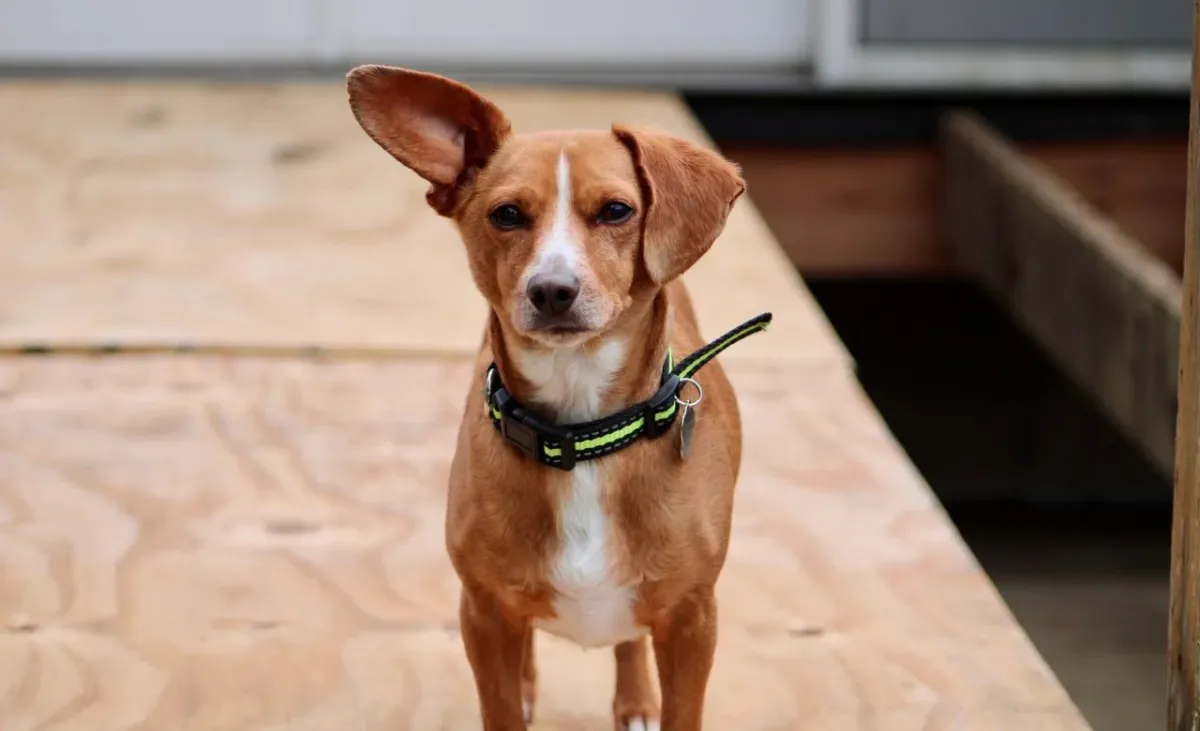Can I Use A Dog Collar On My Cat?
Explore using a dog collar on your cat. Learn about safety and proper fit for feline comfort with our guide for informed decisions.
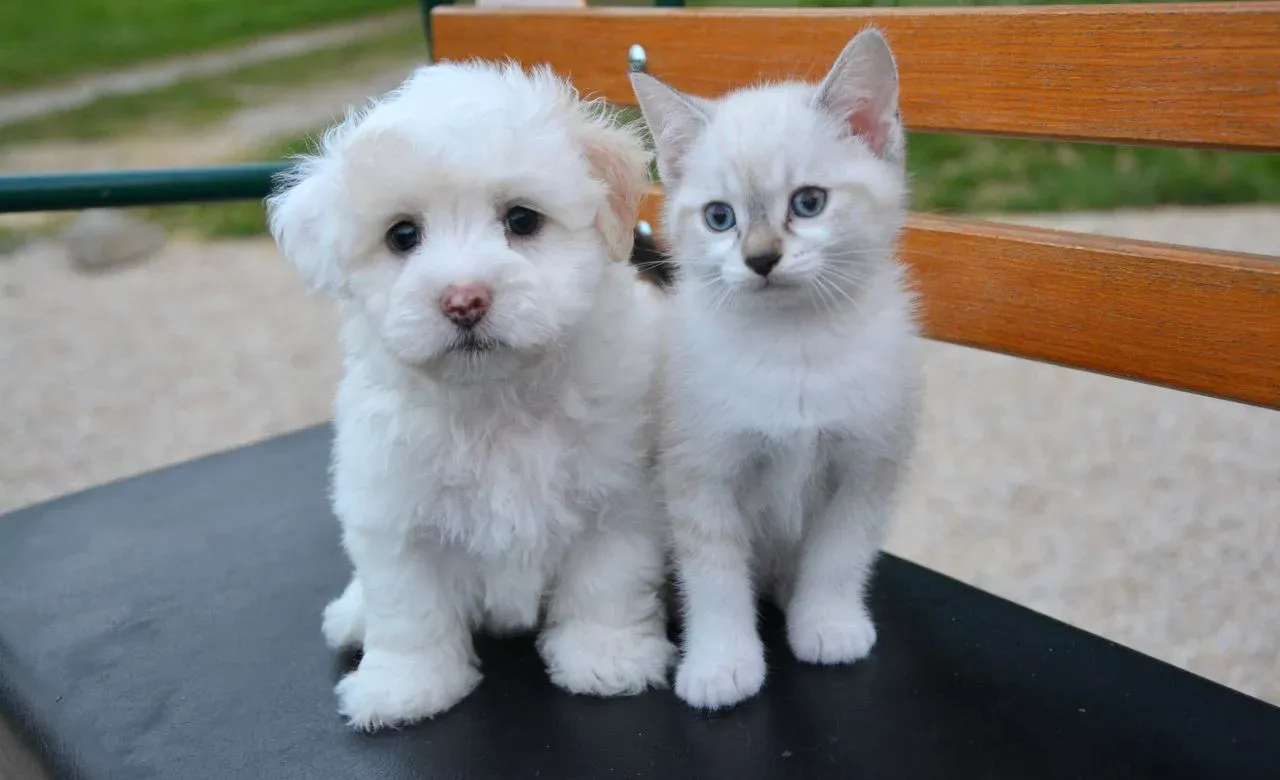
As cat owners, people often contemplate using a dog collar on our feline friends. So, here’s the question: Can I use a dog collar on my cat? The question arises not only out of convenience but also from a desire to provide identification and perhaps personalization for our beloved cats. However, the decision to use a dog collar on a cat is not without its complexities.
Can I Use a Dog Collar on My Cat | Not Recommended
So, can I use a dog collar on my cat? Using a dog collar on a cat is not recommended due to safety and comfort concerns. Dog collars lack a breakaway feature, posing a strangulation risk if the cat gets caught on something. Improper fit, uncomfortable materials, and behavioral issues, such as stress and grooming interference, further highlight the unsuitability.
Opting for cat-specific collars with breakaway features or alternative identification methods like microchipping and harnesses ensures the safety and well-being of our feline companions.
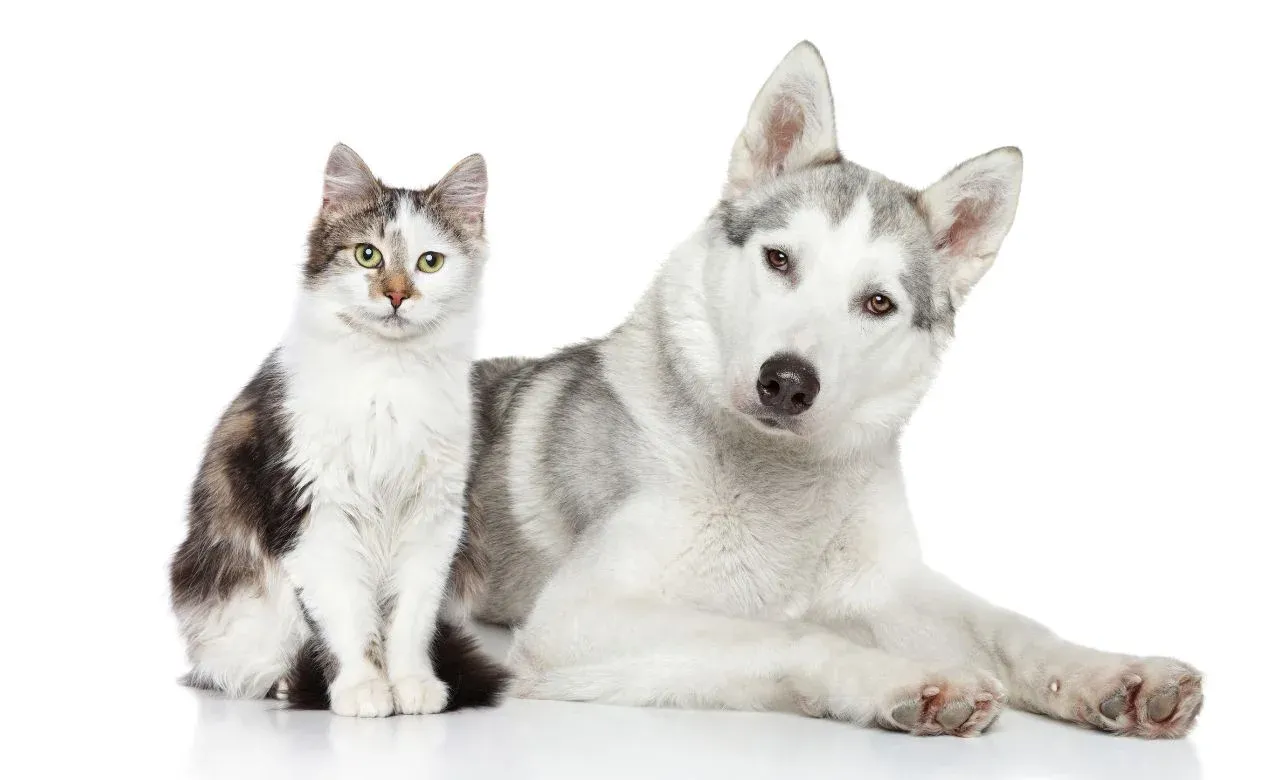
The Problem With Dog Collars For Cats
Whether a dog collar is suitable for our feline companions may cross the minds of cat owners seeking convenient solutions for identification or personalization. However, beneath the surface of this seemingly practical idea lies a range of potential issues that can compromise the safety and comfort of our cats.
Problem 01: Safety Concerns
1. Lack of Breakaway Feature
One of the most critical safety concerns when using a dog collar on a cat is the lack of a breakaway feature. Unlike cat collars designed to release under pressure, dog collars are intended to stay on.
This can pose a serious risk if a cat gets caught on something, such as branches or fences. The inability to escape may lead to strangulation, making it a life-threatening situation for the cat.
2. Improper Fit
Dog collars are typically larger and heavier than those designed for cats. The improper fit can cause discomfort and irritation, making it essential for cat owners to consider the size and weight of the collar when choosing one for their feline companions.
3. Material and Design
Materials used in dog collars may be uncomfortable or even harmful to cats. Additionally, the design of dog collars may not be suitable for cats' active and agile nature. The discomfort and potential hazards associated with the material and design make dog collars ill-suited for feline use.
Problem 02: Behavioral Concerns
1. Stress and Anxiety
Wearing an ill-fitting or unfamiliar collar can induce stress and anxiety in cats. Felines are known for their sensitivity, and a collar that feels foreign or uncomfortable can significantly impact their well-being.
2. Grooming Issues
Collars can interfere with a cat's grooming routine. The constant presence of a collar may lead to matting of fur and skin irritation, affecting the cat's appearance and overall comfort.
3. Escape Attempts
Being naturally curious and agile, cats may attempt to remove a collar that doesn't feel right to them. These escape attempts can cause further stress and potential injury to the cat.
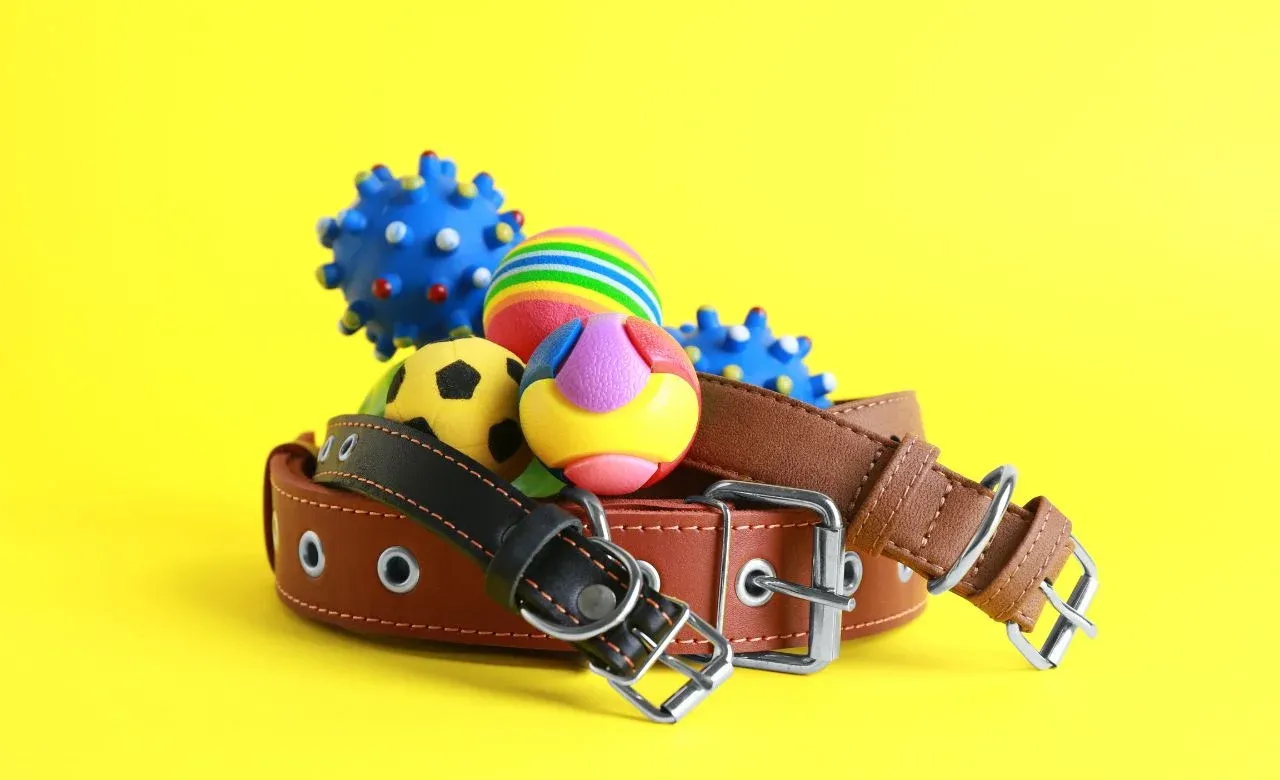
Alternatives To Dog Collars For Cats
With their independent and agile nature, cats have unique needs when it comes to accessories like collars. While the temptation to use a dog collar on a cat may arise, the potential risks and discomfort associated with such a choice necessitate exploring alternatives tailored specifically for our feline friends.
Alternative 01: Cat Collars
1. Breakaway Feature
Cat collars are designed with a breakaway feature to ensure the cat's safety. This feature allows the collar to release if it becomes entangled, preventing the risk of strangulation.
2. Proper Fit
Cat collars come in various sizes and are adjustable to ensure a proper fit. This prevents discomfort and minimizes the chances of the collar slipping off.
3. Comfortable Materials
Cat collars are manufactured from lightweight and soft materials such as nylon or leather and prioritize comfort while serving their identification purpose.
4. Various Styles and Designs
Cat owners can choose from diverse styles and designs to suit their cat's personality and preferences, allowing for personalization without compromising safety.
Alternative 02: Microchipping
1. Permanent Identification
Microchipping provides a permanent form of identification for lost or stolen cats. Unlike collars, microchips are embedded under the skin, eliminating the need for a collar and reducing potential risks.
2. No Collar Needed
Microchipping removes the discomfort associated with collars, offering a reliable and hassle-free method of cat identification.
Alternative 03: Harnesses
1. Ideal for Leash Training
Harnesses are an excellent alternative for cats that enjoy outdoor adventures or leash training. They distribute pressure evenly, preventing strain on the neck.
2. Prevents Neck Strain
Unlike collars that exert pressure on the neck, harnesses offer a safer option for walking or training, particularly for cats prone to respiratory issues. Now you know the answer - can I use a dog collar on my cat?
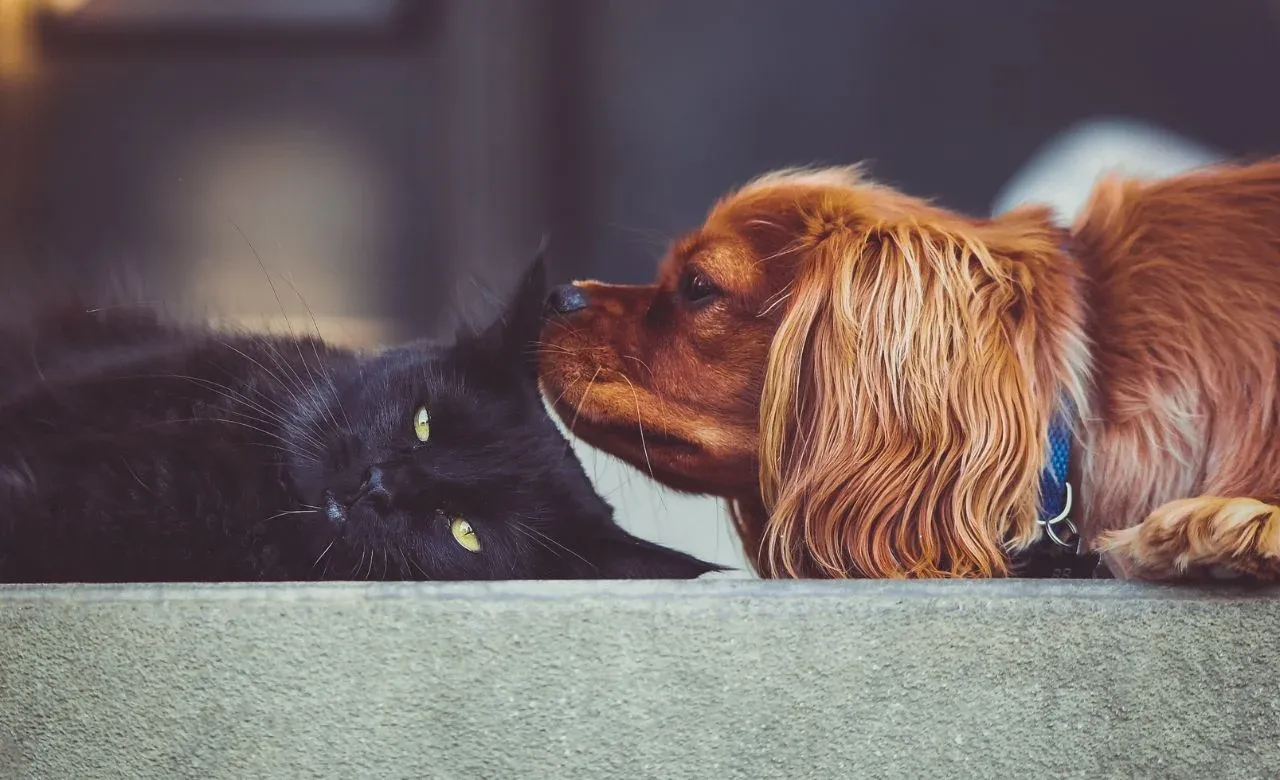
Special Considerations
Each cat is a unique individual with distinct characteristics and requirements. When selecting a collar or harness, it is crucial to consider factors such as the cat's age, activity level, and any underlying medical conditions.
- Age: Kittens, for example, may require a collar with a more secure fit to prevent accidental slipping. As they grow, adjustments will be necessary to accommodate their changing size. Older cats might benefit from collars designed for comfort, especially if they have arthritis or other age-related concerns.
- Activity Level: Highly active cats, known for their climbing and exploring tendencies, may benefit from a harness rather than a collar. The harness provides better control and prevents the cat from slipping out, offering a secure option for outdoor adventures.
- Medical Conditions: Cats with specific medical conditions, such as respiratory issues or skin sensitivities, may require specialized collars or harnesses. For example, cats prone to respiratory problems might find a harness more comfortable than a traditional collar, reducing strain on their necks.
Monitoring and Maintenance:
Regular monitoring and maintenance are essential to ensure the ongoing safety and well-being of the cat.
- Check for Fit: Regularly assess the fit of the collar or harness. Ensure it is snug enough to stay in place but not too tight to cause discomfort. Adjust as needed, especially during periods of growth or weight changes.
- Look for Wear and Tear: Inspect the accessory for any signs of wear and tear. This includes frayed edges, damaged buckles, or weakened attachment points. A well-maintained collar or harness is crucial for its effectiveness and the cat's safety.
- Observe for Discomfort: Pay attention to any signs of discomfort the cat exhibits. Excessive scratching, attempts to remove the accessory, or changes in behavior could indicate discomfort or irritation.
Conclusion
In conclusion, using a dog collar on a cat poses significant risks and discomfort. Safety concerns, including the lack of a breakaway feature and improper fit, highlight the incompatibility of dog collars with feline needs.
Alternatives, such as cat-specific collars with breakaway features, microchipping, and harnesses, offer safer options for identification and outdoor activities.
Understanding the specific needs of individual cats, introducing accessories gradually, and regular monitoring contribute to a positive and comfortable experience for our feline friends. Prioritizing safety over aesthetics ensures that our cats can enjoy their lives free from unnecessary risks and stress. I hope now you know “Can I use a dog collar on my cat?”
Looking for the Best Biothane Dog Collar– Durability Meets Fashion? Check our picks below and buy one today👇
